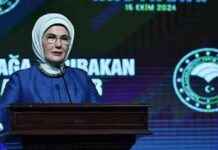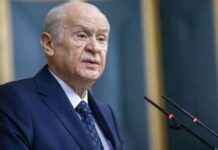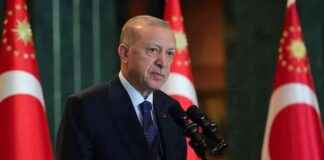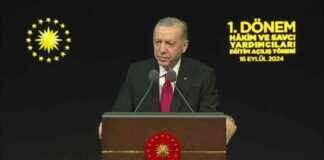Turkish Parliament Speaker Numan Kurtulmuş has brought to light the deep-seated coup mentality embedded in the country’s constitution. In his recent statements, Kurtulmuş highlighted the significant role that the 1982 Constitution plays in various political and social issues in Turkey. He emphasized the urgent need to rid the country of this constitution, which he described as a product of past military coups.
Kurtulmuş pointed out that despite the passage of time, the authoritarian and anti-democratic spirit of the previous coups still lingers within the current constitution. He stressed that simply changing the text of the constitution would not suffice to address the underlying issues. According to Kurtulmuş, the real challenge lies in eliminating the privileges and exceptions that undermine the principles of democracy.
The Legacy of the 1982 Constitution
The 1982 Constitution was drafted under the military regime that came to power following the 1980 coup d’état. It was designed to consolidate the military’s grip on power and suppress dissenting voices in the country. Over the years, the constitution has been criticized for its undemocratic provisions and restrictions on fundamental rights and freedoms.
One of the key features of the 1982 Constitution is its emphasis on centralized power and limited checks and balances. This has allowed successive governments to wield disproportionate authority, often to the detriment of democratic principles. The constitution also enshrines certain privileges and immunities that have perpetuated inequality and injustice in Turkish society.
Kurtulmuş’s remarks underscore the need to confront the legacy of the 1982 Constitution and embark on a process of constitutional reform that reflects the values of democracy and inclusivity. He called for a thorough review of the constitution to remove any remnants of the coup mentality and ensure that it aligns with the aspirations of the Turkish people.
Challenges to Democratic Consolidation
The persistence of authoritarian elements in the constitution poses a significant challenge to Turkey’s democratic consolidation. The presence of imtiyaz (privileges) and istisnalar (exceptions) in the legal framework undermines the rule of law and perpetuates inequality in society. These provisions create avenues for abuse of power and hinder the development of a truly participatory democracy.
Kurtulmuş emphasized the need to dismantle these imbalances and restore the primacy of democratic institutions in Turkey. He called for a comprehensive overhaul of the constitution to ensure that it reflects the will of the people and upholds the principles of equality and justice. This process, according to Kurtulmuş, requires a collective effort to overcome the entrenched interests that seek to maintain the status quo.
Towards a New Constitutional Framework
The path to a new constitutional framework is fraught with challenges and complexities. It requires a broad-based consensus among political parties, civil society organizations, and other stakeholders to chart a course towards a more inclusive and democratic system. Kurtulmuş’s statements have reignited the debate on constitutional reform in Turkey and raised hopes for a more participatory and transparent process.
In order to break free from the shackles of the past, Turkey must embark on a journey of self-reflection and reform. The constitution should serve as a beacon of democracy and human rights, guiding the country towards a future marked by freedom, equality, and justice for all. As Kurtulmuş aptly stated, the time has come for Turkey to shed the vestiges of its authoritarian past and embrace a new era of democratic governance.





















